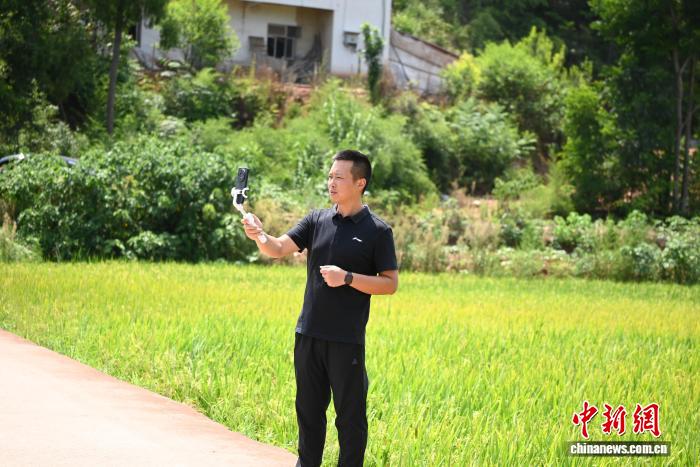From City to Countryside: Young People in China’s “Western Vegetable Capital” Return Home to Explore New Possibilities
In Chongqing’s Tongnan district, known as the “Western Vegetable Capital,” Gong Yijia, born in 1992, has been engaged in rural e-commerce for over seven years. His brand “Village Senior” has successfully sold agricultural products like ginger, tribute rice, and cured meat to major cities and even exported them abroad.
“In rural areas, ‘physical business + internet’ remains a golden opportunity,” Gong Yijia recently said. He first deeply engaged with the internet as a game streamer during university. Later, he returned home to help his father sell ginger “to Europe again.” Now, he explores more possibilities in live-streaming sales, fresh food delivery, and integrating agriculture with culture and tourism.
Before joining the “Jade Beauty” village live-streaming team, Jiang Feng, a post-90s generation member, worked as a kindergarten teacher. She mentioned that the internet has deeply integrated into rural life. Farmers filming their daily activities—planting crops, feeding pigs, or harvesting dragon fruit—have their own audiences. Many young people also engage with rural life through comments or private messages on her account.
The “Jade” in “Jade Beauty” comes from Yuxi Town in Tongnan, while “Beauty” reflects that most team members are women. Currently, the team has over 10 streamers, mostly from the post-90s and post-00s generations. “Live streaming and making videos aren’t just about selling products—they’re also emotional bridges,” Jiang Feng said. Beyond showcasing rural life and helping wanderers reconnect with “hometown flavors,” she hopes to highlight her hometown’s development.
“After seeing my videos of rural life, many young people asked me what they could do if they returned,” said Wen Chunlai, Party branch secretary of Taiping Village in Tai’an Town, Tongnan District. Before returning to the village, he ran a small decoration company with over 20 employees. Now, he’s responsible for more than 2,000 villagers. “The two roles are completely different,” he noted.
In 2020, when Wen first returned, he shared his daily work online, attracting significant attention. “At first, there was skepticism, but persistence brought more positive feedback,” he said. Later, he started live-streaming to help villagers sell agricultural products. His next goal is to expand sales channels and develop local agricultural processing.
Wen also observed that rural-themed short videos and live streams have surged in the past five years, raising the bar for content quality.
Recently, Tongnan launched the “Tongnan Village Streamer” initiative. Local officials stated that the program aims to empower ordinary people who love their hometown and have dreams to become “ambassadors” of local culture by simply using their phones. This will help rural scenery, specialties, and traditions gain national and global recognition through the internet.
A sociology expert noted that China is experiencing a “reverse urbanization” trend, with more city dwellers voluntarily moving to the countryside.
An urban development professor commented that the shift from cities to rural areas represents a meaningful experiment in regional and urban-rural integration. This two-way interaction aligns with broader urbanization trends. The “Tongnan Village Streamer” project cultivates a new generation of farmers while providing a platform for young people to innovate and build careers in rural areas.

“Innovation is essential in any profession,” said Li Youfu, a Tongnan native. With over 20 years in the catering industry, he has created specialty banquets like vegetable feasts, lemon feasts, frog feasts, and crayfish feasts, as well as unique snacks such as lemon crispy pork and “Lemon Wish Fruit” (a snack shaped like a lemon with lemon pulp inside).
In June 2025, after his lemon crispy pork went viral in Singapore, Li registered the




